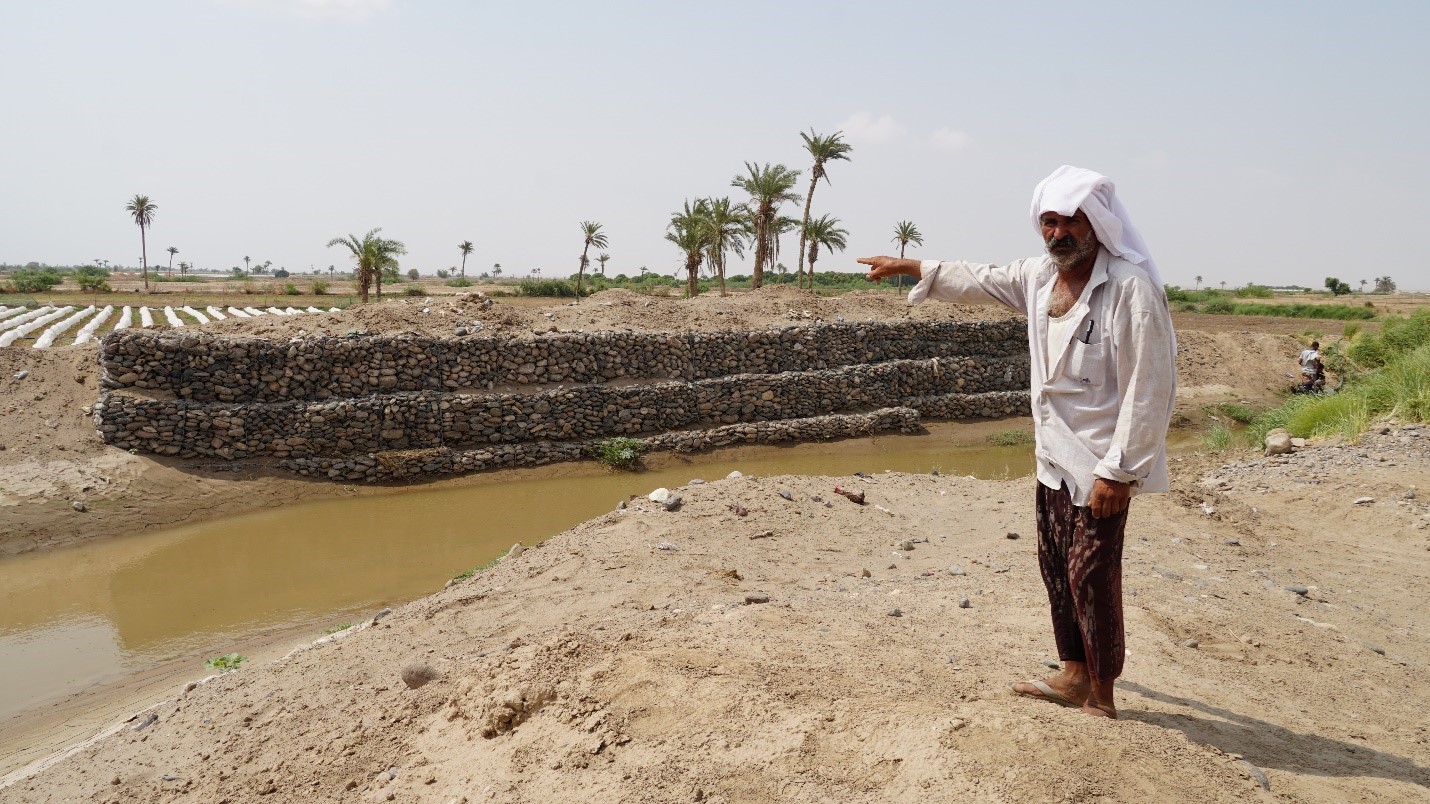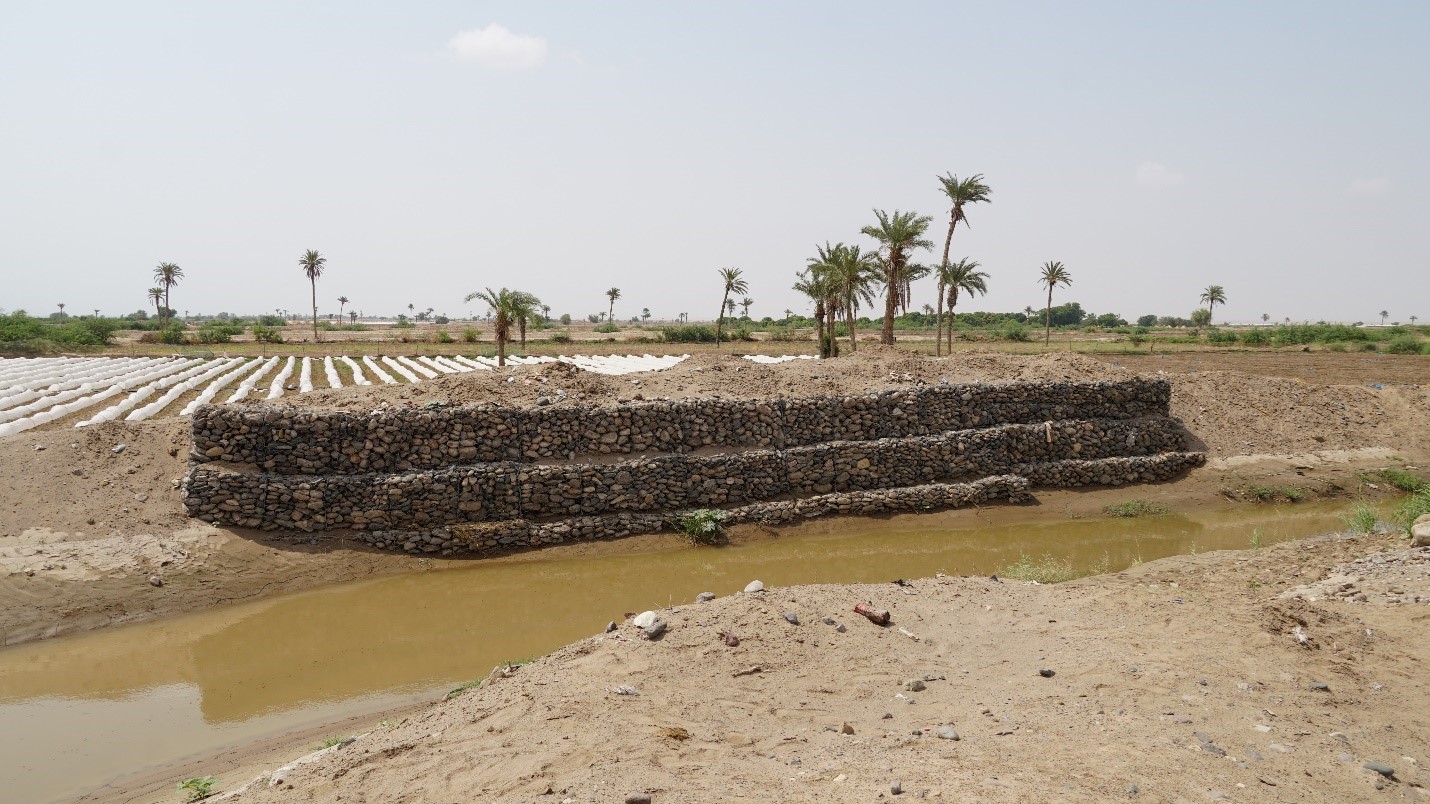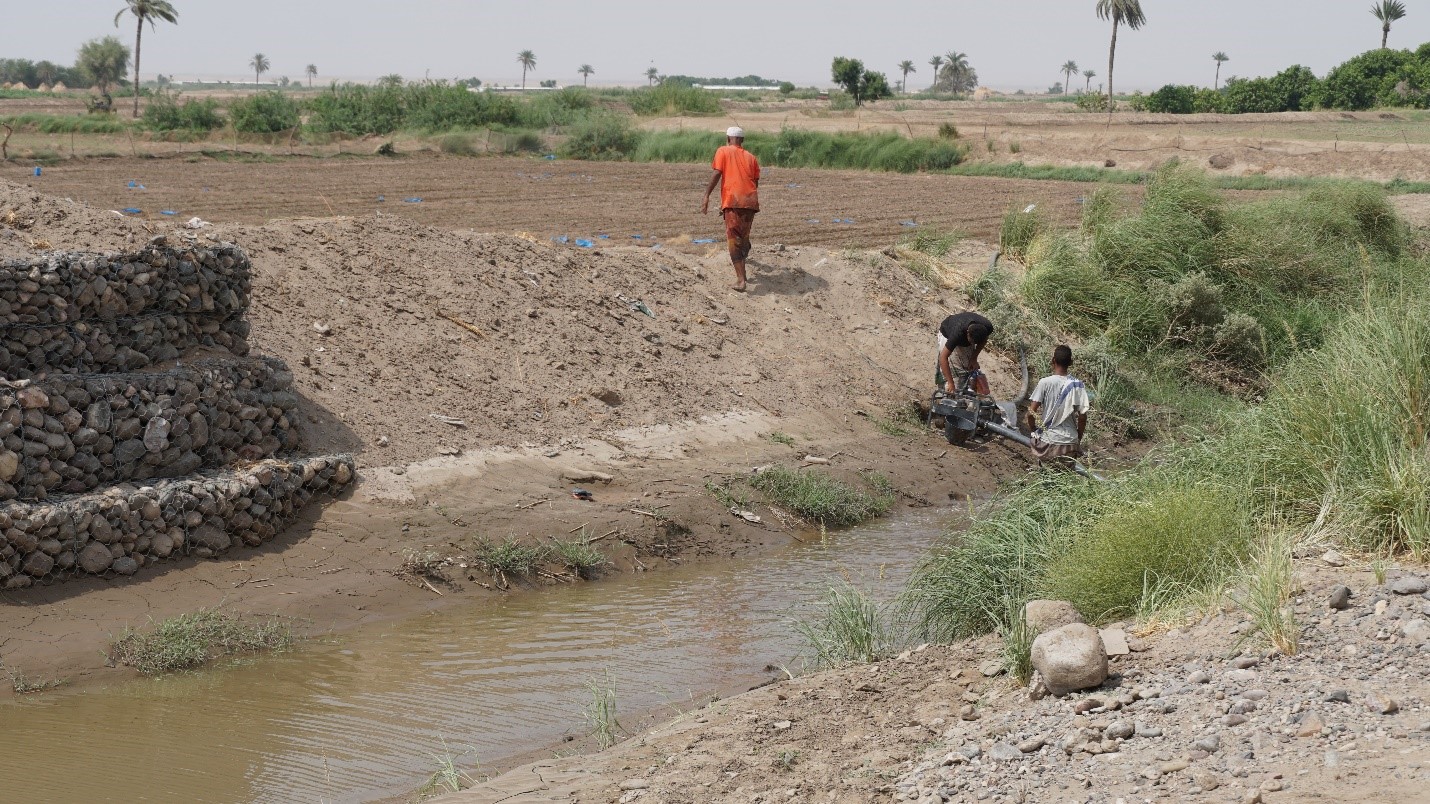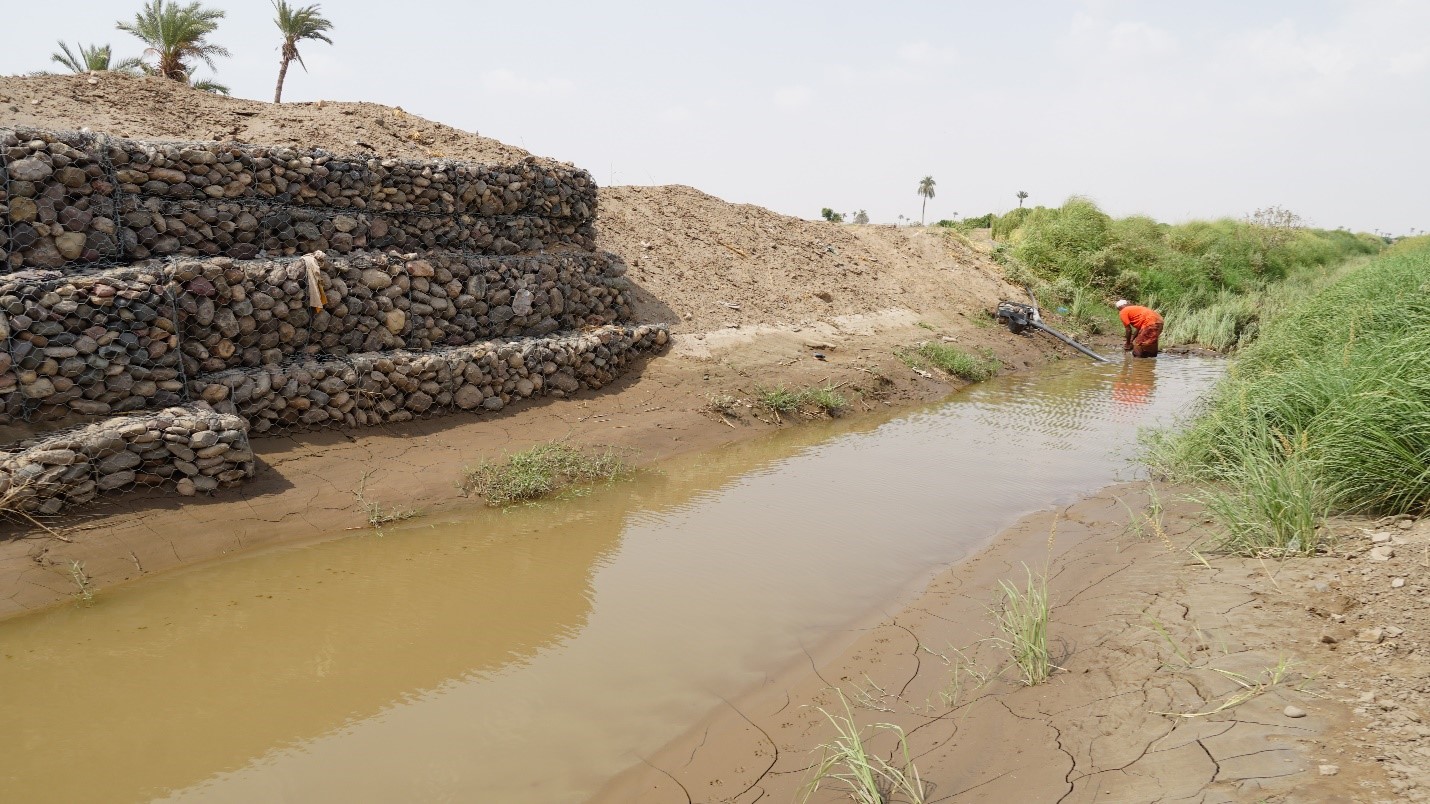Agriculture is the primary economic activity for the residents of Yemen’s Lahj Governorate. Years of conflict and neglect led to the collapse of the irrigation canal system in the governorate. Despite significant efforts by farmers to protect their farms and improve their standard of living, their efforts remain inadequate due to their limited capacities.
Mohammed Ali is a farmer from Lahj Governorate. Like the rest of the farmers in his area, Mohammed struggled to make a living from his farm. He relied on a fuel-powered pump system to irrigate his farmland from groundwater.
“My farm was in a dire state. The floodwaters had caused the walls to collapse, and the soil was rapidly eroding,” says Mohammed. “These conditions made it extremely difficult for me to cultivate crops and support my family.”
Due to price instability and water shortages, many farmers are abandoning their farms in search of alternative livelihoods. Moreover, farmers could not benefit from rainwater, which was often wasted due to lack of a proper drainage infrastructure. This has led to degradation of farmlands, affecting farmers’ incomes and food security. If properly managed, rainwater and floodwater can be used to irrigate farms and recharge groundwater.



